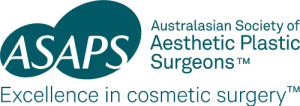We’re all familiar with the song 12 Days of Christmas… but did you know what the 12 things are that you should ask your Specialist Plastic Surgeon before having cosmetic surgery?
With Christmas fast approaching, the Australasian Society of Aesthetic Plastic Surgeons (ASAPS) thought it might be timely to provide people considering cosmetic surgery with a list of 12 questions to ask their Specialist Plastic Surgeon to ensure they’re in safe hands.
-
Ask if your Surgeon is a Fellow of the Royal Australasian College of Surgeons
Currently in Australia, anyone with a basic medical degree – that’s six years of university – can call themselves a Cosmetic Surgeon. This opens patients up to a minefield of practitioners who have varying levels of skills and expertise. However, by choosing a member of ASAPS, patients can be assured that their Specialist Plastic Surgeon is a Fellow of the Royal Australasian College of Surgeons (FRACS) – the only registered training provider for surgeons in Australia and New Zealand.
Achieving a FRACS means on average, on top of their medical degree, ASAPS members have completed eight to 12 years of specialist training, putting their skills and abilities at the very top of the playing field of cosmetic surgery in Australia.
-
Ask if your surgeon has operating restrictions
You can check these out for yourself via the websites of the Medical Board of Australia, Medical Council of New Zealand and the Australian Health Practitioners Regulatory Authority. Restrictions might be in place for their scope of practice or their need to have supervision whilst they perform certain medical procedures.
-
Ask if surgery is done in an accredited and licensed facility
If they do, this means that your Specialist Plastic Surgeon takes safety seriously and in the event of an emergency there is the appropriate help and equipment on hand to respond in a timely and appropriate manner.
ASAPS‘s Plastic Surgeons only work in reputable hospitals and clinics that comply with the highest Australian standards of safety, cleanliness, infection control, staffing and equipment. Within these hospitals they are supported by specialist anaesthetists and practitioners from other disciplines who are also registered by the Medical Board of Australia or the Medical Council of New Zealand as specialists in their specific fields.
-
Ask about your surgeon’s experience
Remember, it’s not always quantity that’s the best indicator of quality. Whilst a Surgeon who performs 500 breast augmentations a year can sound impressive, what’s even more impressive is one that has happy patients whose surgical outcomes met or surpassed their expectations.
Ongoing training and development opportunities such as those afforded to ASAPS members also help to ensure our Specialist Plastic Surgeons remain the leaders in their field.
-
Ask about your procedure and what will happen
Having a cosmetic surgery procedure performed is not without its risk so you want to ensure you are fully informed about the process the Surgeon will be undertaking, that you are comfortable and understand what you’ve been told and that you and your Surgeon are both on the same page about the results you are likely to achieve.
-
Ask what their aftercare service like
Great aftercare is one of the most important reasons to choose an ASAPS member.
All ASAPS members are supported by health professionals who are every bit as accomplished and understanding as they are themselves. Together, they will be available to answer any questions and respond to any post-treatment complications.
-
Ask if you can view before and after photographs
Ask to see some before and after photos of patients who have had the procedure with your Specialist Plastic Surgeon. Examine these photos carefully to make sure you are not paying attention to irrelevant factors such as lighting, but to the outcomes of the surgery. It’s important however to view these with a healthy dose of scepticism as you are no doubt being shown the best of the best, but it’s important for you to know exactly what to expect in terms of results.
-
Ask about risks and complications
There’s no doubt that through the influx of doctors into the field of cosmetic surgery there has been a conscious downplaying of the seriousness of risks and complications.
No procedure is without its risks and you should be made fully aware of all the risks before choosing to have any your procedure performed.
-
Ask if the surgeon works alongside a Specialist Anaesthetist
A Specialist Anaesthetist is a fully qualified medical doctor who, after obtaining their medical degree, has spent at least two years working in the hospital system before completing a further five years of training in anaesthesia. In fact, their training is as long as that of a surgeon.
Anaesthetists assess patients before their procedures and play an important role in caring for the patient before, during and after surgery. They also provide anaesthetic care for patients undergoing non-surgical procedures, particularly if the procedures are long, complex or painful.
Anaesthetists have an extensive knowledge of medicine and surgery and understanding of the basic sciences. They know how the body responds to anaesthesia and surgery, and how a patient’s health affects these responses.
-
Ask about your recovery
Ask about your recovery, especially the first 24-48 hours? Ask if you will be able to drive home, when you will be able to return to work, when you can return to strenuous activity such as exercise and how long until you should start to see your final results?
-
Ask for a second opinion
To ensure you are completely informed about what you are entering into and that you are comfortable with the person you have agreed to perform your surgery, a good idea is to seek a second opinion from another Specialist Plastic Surgeon. This additional perspective may help you decide which of many options to take, or to affirm that a specific treatment is appropriate for your specific situation.
-
Ask real people
Ask for information from real people – family, friends, and other people who have been through the same procedure.
Do not rely solely on the internet to provide you with all the information you need to know about a procedure as there is a considerable amount of misleading information out there and patients should consider the accuracy of information from dubious and unverified sources.

